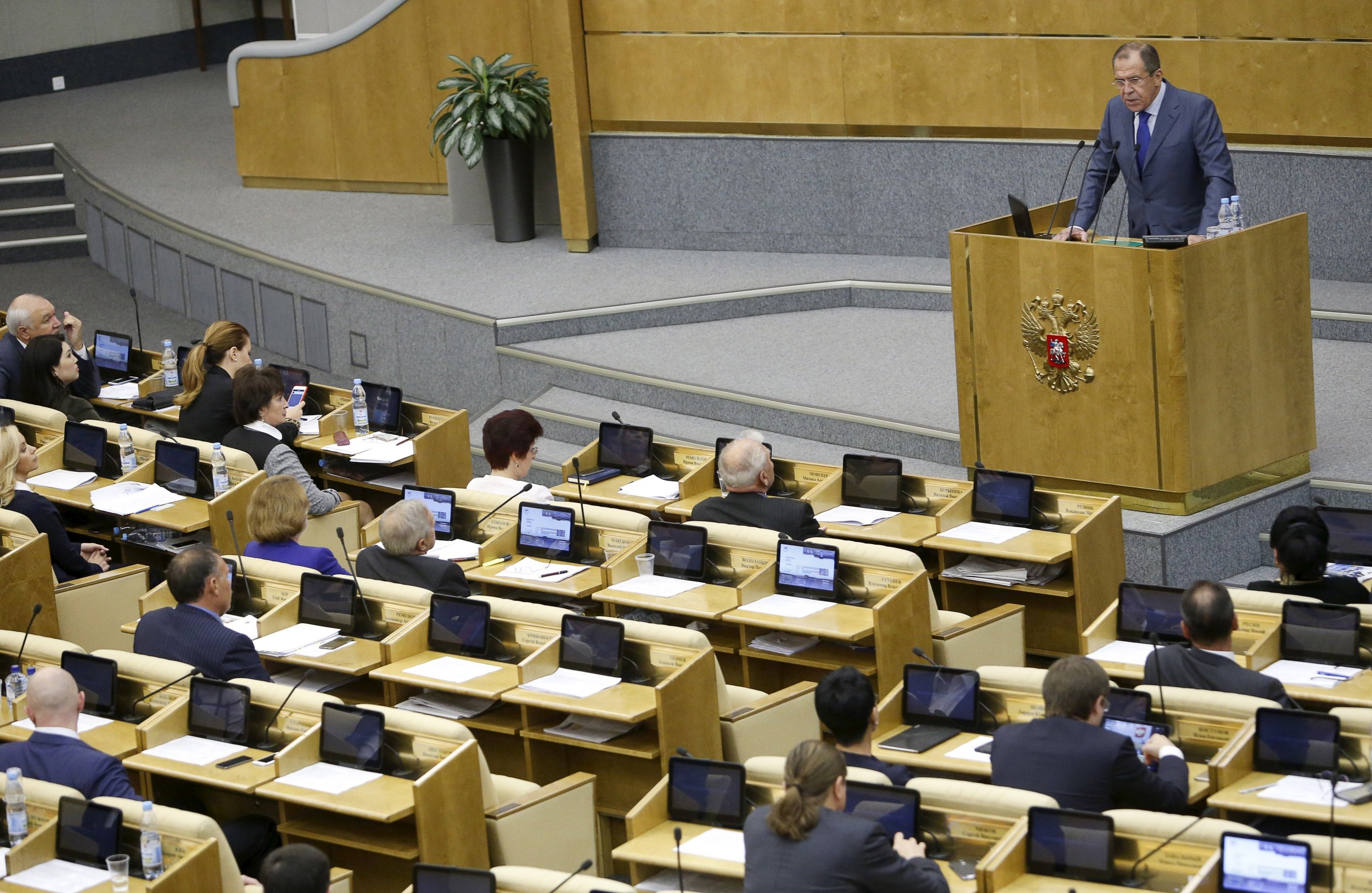
Russian parliamentarians have hailed the referendum defeat for Italy's government and the narrow defeat of the far-right in Austria as a triumph for "patriotic political forces" that spell the downfall of the EU.
Italian Prime Minister Matteo Renzi risked his job on Sunday's vote to weaken regional representatives and strengthen central government, allowing Italy to push through reforms. The resounding vote against the suggestion lead to Renzi announcing his resignation, prompting pro-Kremlin politicians in Russia to candidly predict the demise of the EU. Meanwhile in Austria, Greens candidate Alexander Van der Bellen won narrowly against far-right challenger Norbert Hofer.
Leonid Slutsky, International Affairs Committee chief in Russia's lower house of parliament, said he believed the result in Italy landed a "considerable blow on the unity of the EU" and made more likely the possibility of the EU dropping sanctions on Russia.
Despite commentators such as German Finance Minister Wolfgang Schaeuble claiming this was not a vote that could bring the EU into crisis mode, Slutsky concluded the referendum was on par with Britain's vote to leave the union earlier this year.
"This event unquestionably sits in line with Brexit, as its consequences threaten to result not only in the resignation of the prime minister of the country but to make an impact on the whole of the EU," he told state news agency Itar-Tass.
The head of the International Affairs Committee in Russia's upper house, Konstantin Kosachev, made an even bolder statement about the two votes, warning on Facebook that Europeans should not take solace in the Austrian election result.
"It is impossible to deny any longer that European societies are divided and the fault lines are obvious and principal," he wrote. "The times when voters chose between liberal parties, differing only in nuance, is on its way out and an epoch of political turbulence is coming."
"The Italian referendum is only one of the first acts of this possible drama," he added.
Alexey Pushkov, the former International Committee head and current Information Policy Commission head in the upper house, echoed Kosachev's sentiments on Twitter.
"The defeat for the Renzi government in the referendum in Italy can lead to an Ital-exit or to its exit from the eurozone," he wrote. "The EU is living through complicated times."
Sergey Zheleznyak, a vocal member of the ruling United Russia party in parliament, declared that both countries' votes showed that "the vector of public attitude turns more towards the protection of national interests" and against the EU.
"The EU leadership's policy of erosion of national sovereignty, territorial boundaries and economic interests is undergoing a global crisis," he told state news agency RIA Novosti.
"The crisis in relations between Russia and the EU, imposed on the European bureaucracy from across the Atlantic, is not in the interests of Russia and the peoples of Europe," Zheleznyak said, alluding to joint U.S. and EU punitive measures against Russia's involvement in Ukraine.
"I hope that the ongoing events in Europe will sober up European institutions of power and allow to them take the necessary decisions for the EU development framework, taking into account the national interests of the participating countries . Otherwise, the future of the European Union is under a big question mark."
Russia maintains that the drop in relations between the West and Moscow over the last three years is the fault of Western actions towards Russia, intended as support for Ukraine.
The Russian government, which annexed Crimea from Ukraine in 2014 and has backed separatist-held regions in eastern Ukraine, has ongoing partnerships with eurosceptic groups in the EU. Sanctions on Russian businesses and Russia's corresponding import ban on European products have been more problematic for poorer EU countries, with stronger trade ties to Russia.
EU leaders are expected to renew sanctions on Russia later this month. However, U.S. president-elect Donald Trump has signalled he may lift sanctions when he is sworn in next year.
Uncommon Knowledge
Newsweek is committed to challenging conventional wisdom and finding connections in the search for common ground.
Newsweek is committed to challenging conventional wisdom and finding connections in the search for common ground.
About the writer
I am a Staff Writer for Newsweek's international desk. I report on current events in Russia, the former Soviet Union ... Read more
To read how Newsweek uses AI as a newsroom tool, Click here.








